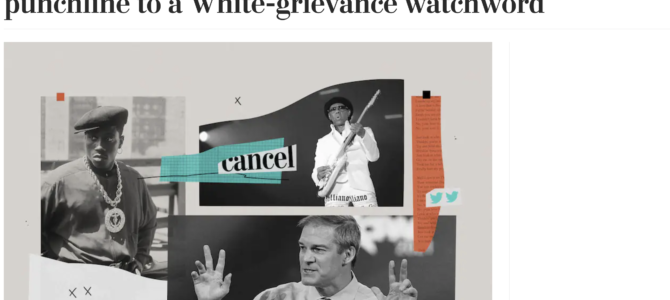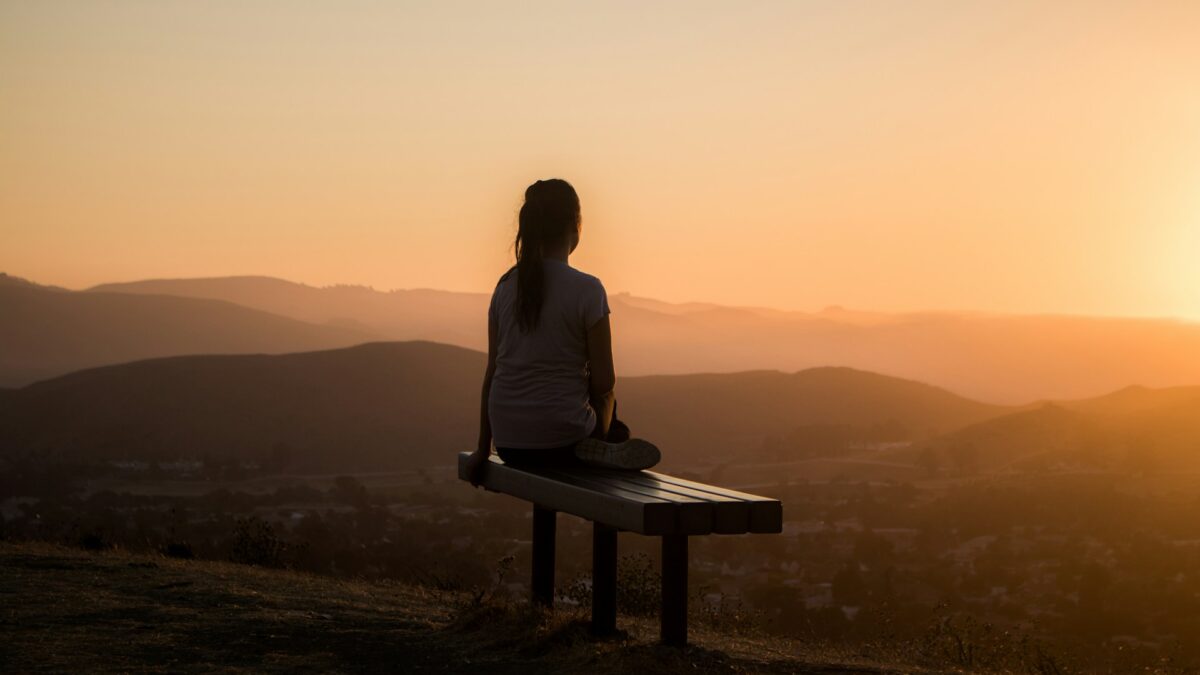
When I lived in Thailand for three years, I saw a lot of curious attempts to mimic American culture. There is Thai hip hop, Thai country, and even Thai heavy metal. I lived through three Thai Christmases and Halloweens (despite the country being 95 percent Buddhist). I sat through innumerable Thai soap operas as I ate lunch at a cafeteria near work.
You can judge for yourself whether any of these things succeed. I confess I was typically more dismayed than delighted, although I tried to remind myself that imitation is the highest form of flattery.
Not so for Clyde McGrady and the editors at the Washington Post. McGrady in a April 2 article explains that he views imitation as yet another manifestation of “cultural appropriation.” That includes conservatives (he focuses exclusively on attacking white conservatives, but obviously there are plenty of non-white conservatives) who are raising alarm bells regarding the dangers of cancel culture. Because, you see, the idea of “cancelation” itself derives from black culture.
Perhaps the most ridiculous and depressing aspect of McGrady’s article is that in the Post’s April 5 print edition, it appeared directly next to an article about black journalist Alexi McCammond, who in mid-March parted ways with Teen Vogue over some old tweets that “included comments on the appearance of Asian features, derogatory stereotypes about Asians and slurs for gay people,” according to The New York Times.
One wonders if WaPo editors are so blinded by their ideological zealotry that they can’t perceive the irony in featuring an article shaming white people for “cultural appropriation” of cancel culture alongside an article in which a young black woman was canceled for something she wrote as a teenager.
Of course, there are plenty of absurdities in McGrady’s article. There is his claim that “‘cancel culture’ is a new favorite way to describe what’s making them [conservatives] upset (way punchier than ‘political correctness’).” Not quite.
How about the attempts by Big Tech to silence ideas they don’t like, as we recently saw with Amazon’s removal of Ryan Anderson’s book on transgenderism? Or perhaps Kevin Hart’s forced resignation from the Oscars? Or a black security guard fired from his job for using the n-word in the course of telling a student not to direct the word at him? Conservatives have complained about all of these.
Or consider McGrady’s frustration that “‘Cancel’ and ‘woke’ are the latest terms to originate in black culture only to be appropriated into the white mainstream and subsequently thrashed to death.” He bemoans “the commodification of Black slang” as “practically an American tradition.”
What would McGrady prefer? That white Americans insulate themselves from black culture and refuse to listen to black music, eat black-influenced cuisine, or use black-originating vocabulary? Wouldn’t that be racist, egregiously more racist than “appropriating” black culture?
Black culture is American culture, and always has been. This is the complex beauty of cultural intersection. Yes, of course, practically every major American musical genre — blues, bluegrass, country, jazz, rock — is indebted to black culture in one way or another. That’s because black culture has created wonderfully interesting art.
White musicians borrow from these traditions and create their own unique style. Perhaps some of them are cynical and self-obsessed, but the white American musicians I love the most — Stevie Ray Vaughan, Johnny Winter, the Black Keys — are effusive in their praise of the black culture from which their sound originates. Indeed, in an old video of Johnny Winter and Dr. John, Winter explicitly complains about musicians ashamed of their musical heritage.
For McGrady, race is the preeminent prism for interpreting contemporary social and political developments. “Not only have these words been appropriated from Black culture,” he writes, “but they have also been weaponized to sneer at the values of many young Black liberals.”
No, cancel culture is the weapon and it is wielded at blacks and whites, conservatives and liberals alike. How many articles must conservative publications publish bemoaning how cancel culture is not only affecting conservatives, but liberal writers, editors, academics, and celebrities? Go talk to Bret Weinstein, Lindsay Shepherd, or Donald McNeil.
McGrady writes: “‘Cancel’ is now just another word that White people have taken and run into the ground.” How is such a claim not patently racist? How has our culture, and our supposedly leading media institutions, come to accept such asinine, antagonist gibberish as worthy of print? That such a sentence would appear alongside an article describing how a once widely hailed black female editor was canceled for some old tweets she apologized for demonstrates the degree of comedy and tragedy that defines our zeitgeist.
Black culture is beautiful and inexhaustibly interesting. Indeed, there cannot be a truly American culture without the indelible influence of black Americans, whether it be their contributions to language, music, cuisine, literature, politics, or anything else. An exclusively white America, stripped of our shared racial and cultural heritages, would be impoverished. Most white Americans know this, celebrate black culture, and borrow heavily from it, as well they should.
McGrady appears to want it both ways. White Americans are cultural appropriators when they integrate black culture into their own life and language. Yet such persons would undoubtedly be racists if they refused to accept the contributions of black Americans as good and worthy of emulation. In this confused paradigm, there is no way out of the smear of racism. It’s no wonder people like John McWhorter call wokeism an acidic, socially destructive religion.
Above all else, I would want to leave McGrady and those sympathetic to his opinions with a warning and a plea. First, the warning. The WaPo cares less about people than it does about its ideological vision. They, like The New York Times, Vogue, and so many other institutions, will have no trouble canceling anyone who fails to maintain conformity with the progressivist project. They’ve proved that time and again.
Thus my plea: realize who is really involved in racial exploitation by promoting the misnomered “anti-racist” balderdash that only further frays the fabric of American civic cohesion and leaves an increasing number of casualties in its wake.
Cancel culture is real, and the victim list keeps growing. Its victims span every race, sex, ethnicity, and socio-economic group in this country. In its malevolence and refusal to forgive, it is the very antithesis of the Christian religion that so deeply informed our Founders, and generations of religiously devout black Americans. It is racist, hateful, and self-destructive. I pray our nation realizes this before it consumes us all.









